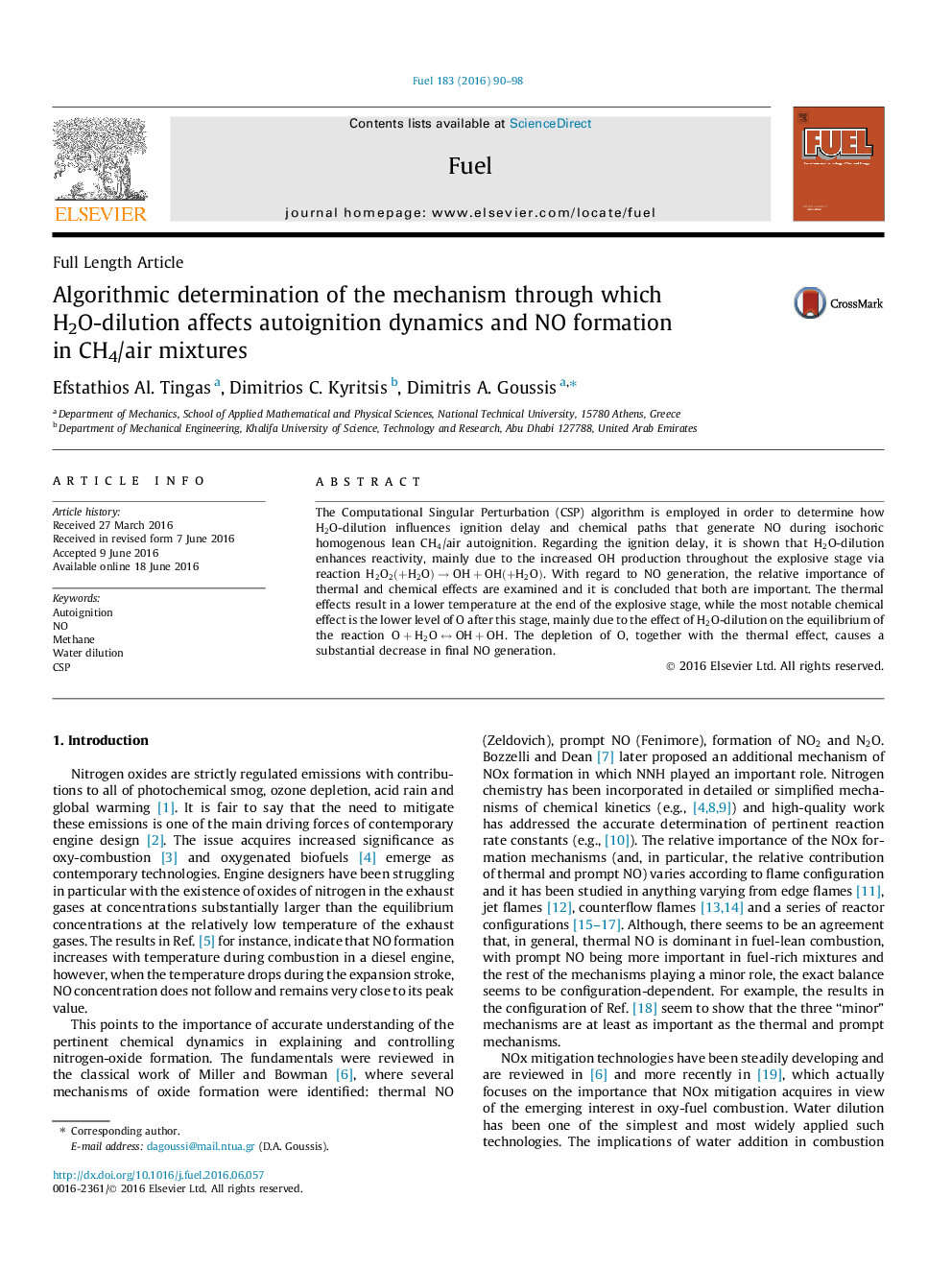| Article ID | Journal | Published Year | Pages | File Type |
|---|---|---|---|---|
| 6633202 | Fuel | 2016 | 9 Pages |
Abstract
The Computational Singular Perturbation (CSP) algorithm is employed in order to determine how H2O-dilution influences ignition delay and chemical paths that generate NO during isochoric homogenous lean CH4/air autoignition. Regarding the ignition delay, it is shown that H2O-dilution enhances reactivity, mainly due to the increased OH production throughout the explosive stage via reaction H2O2(+H2O)âOH+OH(+H2O). With regard to NO generation, the relative importance of thermal and chemical effects are examined and it is concluded that both are important. The thermal effects result in a lower temperature at the end of the explosive stage, while the most notable chemical effect is the lower level of O after this stage, mainly due to the effect of H2O-dilution on the equilibrium of the reaction O+H2OâOH+OH. The depletion of O, together with the thermal effect, causes a substantial decrease in final NO generation.
Keywords
Related Topics
Physical Sciences and Engineering
Chemical Engineering
Chemical Engineering (General)
Authors
Efstathios Al. Tingas, Dimitrios C. Kyritsis, Dimitris A. Goussis,
